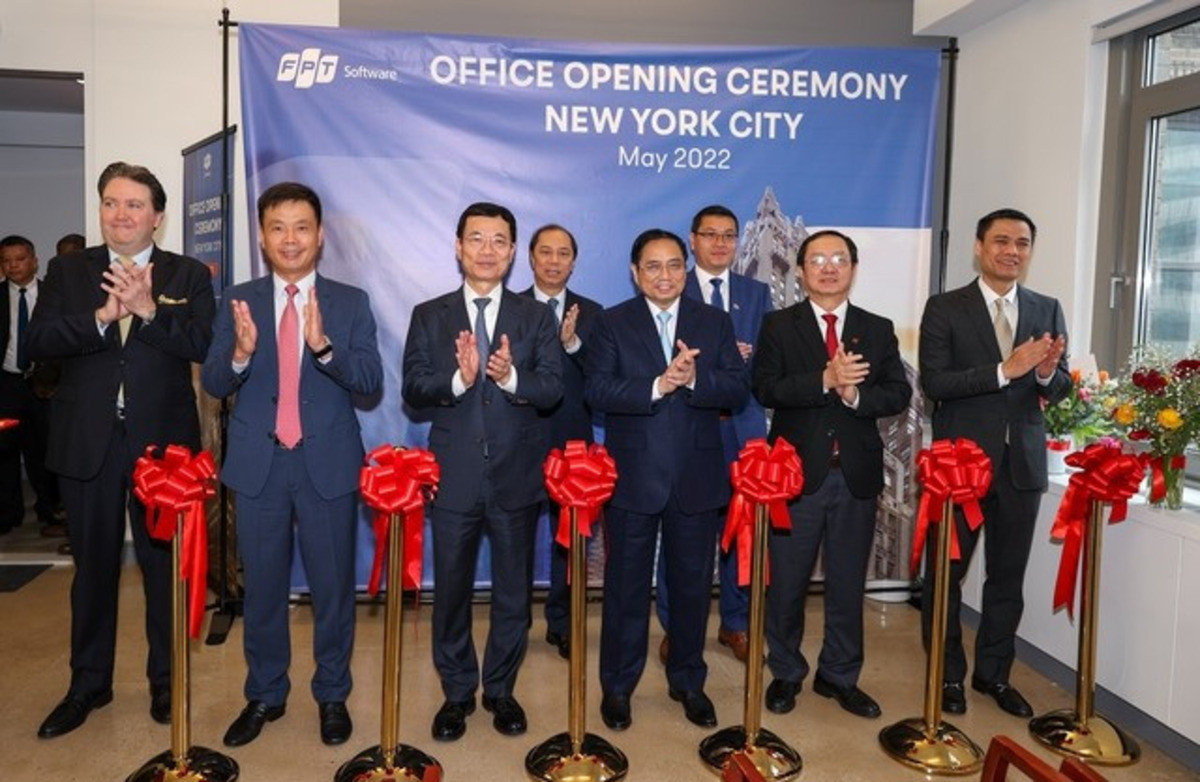
According to the deputy head of the Foreign Investment Agency (FIA), Vu Van Chung, Vietnam has 1,733 outward investment projects in 81 countries/territories with total investment capital of $23 billion.
It is estimated that $400-500 million has been injected into outward investment projects each year, a modest figure noting that Vietnam’s GDP value is $430 billion, just accounting for 0.15 percent of GDP. Meanwhile, China invests $180-200 billion abroad each year, or one percent of its GDP.
Vietnam has policies on financial support to Vietnamese outward investors, but the incentives are modest. Large economies, such as Japan and South Korea, receive great support from their governments and from outward investment encouragement funds. China, for example, has this type of fund with $5 billion.
At first, only state-owned enterprises (SOEs) in Vietnam made investment abroad, but more private investors have appeared over the last five years. A report showed that private outward investors account for 46 percent, while foreign invested enterprises (FIEs) make up 0.5 percent and individual investors 1.5 percent.
This means that SOEs remain the biggest outward investors, but no project was registered in 2023.
Regarding the investment models, 91 percent follow the traditional model of setting up business entities overseas. However, there is a growing tendency in recent years for Vietnamese enterprises to buy into foreign companies. With the new model, Vietnamese enterprises can exploit markets held by foreign companies and their technologies.
Big changes in the nature of outward investment have been found recently. Not only targeting countries which pursue policies and have conditions similar to Vietnam, such as Laos, Cambodia and Myanmar, Vietnamese investors in the last five years have targeted developed economies, including Japan, South Korea, the US, EU, Australia and Singapore.
Not just eyeing land and natural resource-intensive business fields, such as mining, agriculture and forestry, investors now tend to pour capital into business fields which can bring higher added value such as processing and manufacturing, finance and banking, and high technology.
FPT, the largest Vietnamese IT corporation, and other firms, for example, have reaped fruit in Japan and South Korea.
Vietnam has signed with 80 countries/territories agreements on investment encouragement and protection, and with 80 countries/territories agreements on double taxation avoidance. These are important agreements to protect Vietnam’s outward investments.
However, Chung pointed out that many Vietnamese investors, including large corporations, still don’t pay appropriate attention to researching and learning about policies and legal provisions of the international market, and therefore, are prone to legal risks.
The official stressed they need to deeply understand legal issues, which could be the ‘lifebuoy’ which protects them from sinking during storms.
He advised investors to be cautious when making investment in markets with difficult economic conditions and loose legal frameworks. In some cases, suing partners was ineffective as there was no scheme that enforced the losers of the lawsuits to observe the verdict.
Risks
Pham Duy Nghia from Fulbright University, mentioned PetroVietnam, the oil and gas giant which has succeeded in many projects and has been bogged down in some projects, including one in Venezuela.
Viettel, a telecom carrier giant present in 13 foreign markets, has also gained encouraging achievements in Tanzania and Mozambique, but still has not had the desired results in some markets.
He compared outward investment to a marriage, and therefore, if investors don’t have deep understanding about target markets, they will face high risks.
In the case of PetroVietnam, of the $6.6 billion it has invested outward, $1 billion has been buried in the project in Venezuela.
Explaining why investors succeed in certain markets but fail in others, Nghia said there are always risks in every market. The upheavals in the world market, the reactions of governments, and changes in policies all pose risks for Vietnamese investors.
Dung advised Vietnamese investors to follow the principle ‘When in Rome, Do as the Romans Do’. In addition to observing the laws in host countries, Vietnamese investors should also participate in the law making process and create sympathetic relations with political institutions there.
He went on to say that it is necessary to make appropriate investment in assessing risks and preparing solutions for bad situations, as well as spend appropriate time on market analysis.
“In order to prevent fire at your home, you’d better prepare a way out when designing the house,” he said.
Trong Dat